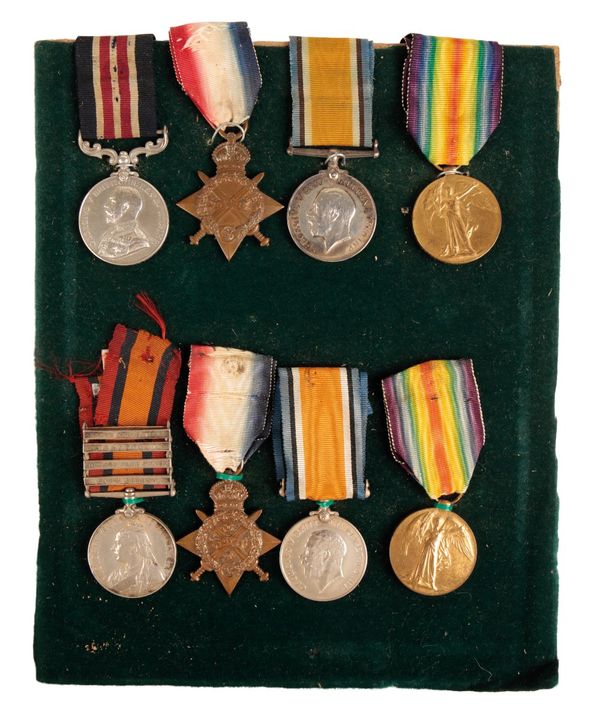TWO SETS OF MEDALS TO BROTHERS IN THE SEAFORTH'S FROM GRANTOWN ON SPEY
| Estimate: |
£400 - £600
|
|
Hammer price:
|
£540 |
Bidding ended. Lot has been sold.
TWO SETS OF MEDALS TO BROTHERS IN THE SEAFORTH'S FROM GRANTOWN ON SPEY The Military Medal winner having served in 1/6th (Morayshire) Battalion. MM 265426 SJT G Dixon 1/6 Sea Hdrs TF 1914/15 Trio 1724 L/Cpl (SJT) Sea Highrs / Seaforth on pair. Correctly impressed. All medals confirmed Condition NGVF. George Dixon was a native of Grantown on Spey, in civilian life he was a ground controller and a member of the 1/6th Morayshire Bn Seaforth Highlanders. He volunteered for overseas service on 7th August 1914. Dixon landed in France on 1st May 1915 with the 1/6 Seaforth Highlanders. He suffered a shrapnel wound to the right leg on 14th December 1915. In May 1917 he suffered a minor wound to his left hand and came down with a case of Pneumonia. He was awarded the Military Medal, which was announced in the London Gazette on 15th June 1917. The date of the award indicates it was likely for The Battle of Arras, which took place in April 1917. A period of service in West Africa followed from 27th March 1918 until 10th March 1919. George survived the war and was discharged on 5th June 1919. QSA ( CC, OFS, T, SA 02) - 6926 Pte J Dixon Sea Highrs 1914 Star - 6926 Pte J Dixon 2/Sea Highrs Pair - 6926 Pte J Dixon Seaforth Correctly impressed All medals and bars confirmed Condition GVF John Dixon was born in Grantown on Spey, a Slater by trade and a member of 3rd Volunteer Bn Seaforth Highlanders. He attested on 4th January 1900, aged nineteen joining the regular Seaforths. Dixon served in the Boer war and was awarded the Queens South Africa Medal with bars Cape Colony, Orange Free State, Transvaal and South Africa 1902. In January 1903 he was posted in India. He was imprisoned for 14 days in November 1905 by his commanding officer. He returned from India in January 1908 and joined the reserves. Dixon reengaged in January 1912 and was mobilised at Fort George on 5th August 1914, joining the 3rd Bn. He was awarded 28 days Field Punishment No2 for Drunkenness 18th November 1914. A more serious offence occurred on 10th September 1917, when Dixon left his post as a sentry before being relieved. He was awarded 90 days Field Punishment No1 by district court-martial. John survived the war and was discharged in March 1919.
Read more

